About
Patty
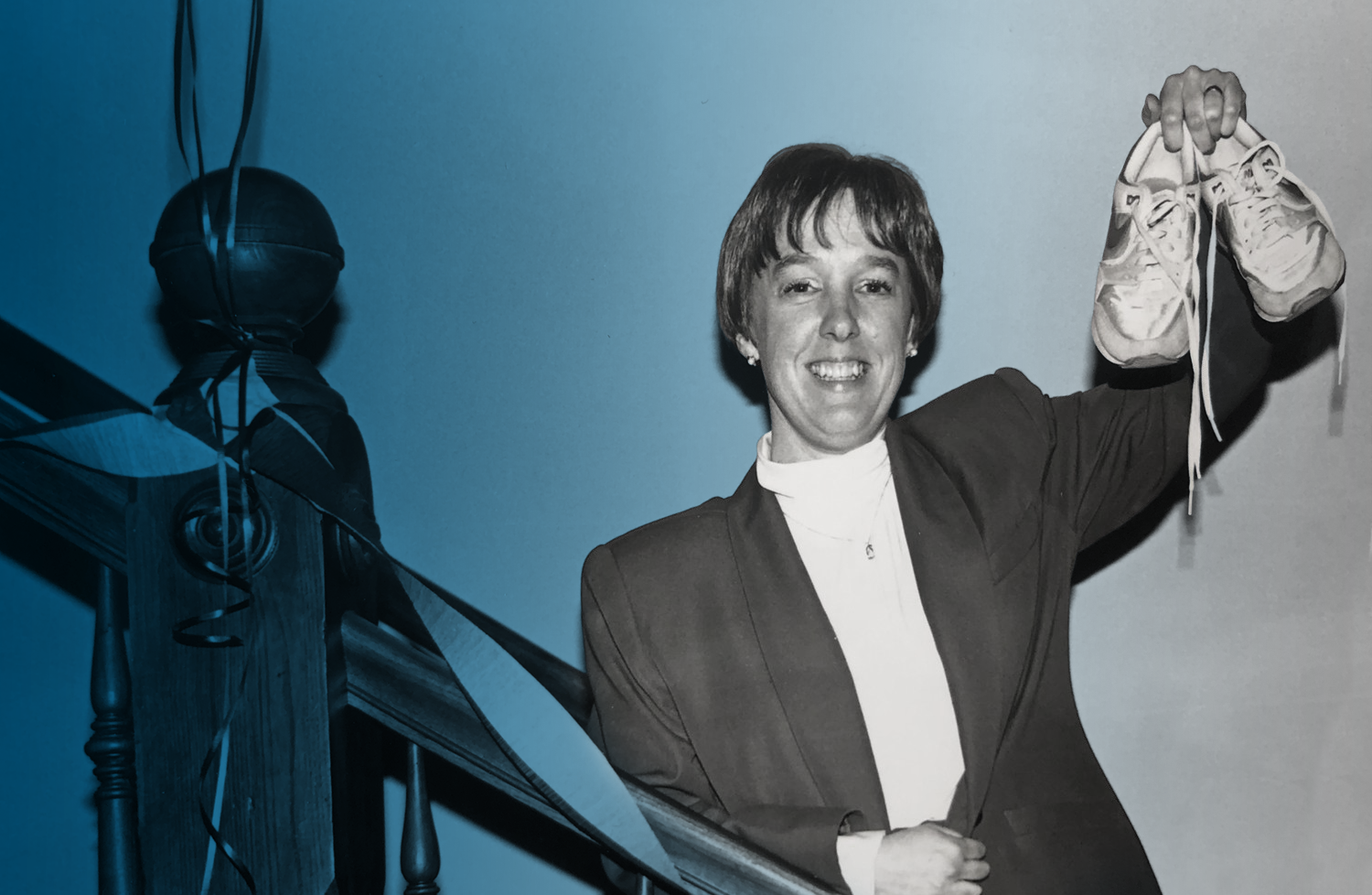
Patty was born and raised in Bothell, Washington where she grew up with her parents and six siblings—including a twin sister. Her father managed a Main Street 5 and 10 cent store, where she worked growing up and first learned the value of a strong work ethic. When Patty was a young teenager, her father—a World War II veteran and Purple Heart recipient—was diagnosed with Multiple Sclerosis and in a few short years, his illness got so bad he could no longer work. Patty’s mother, who had stayed home to raise their family, had to take care of him while also working to support their family. She found some work, but it didn’t pay enough to support Patty and her six brothers and sisters—and a husband with growing medical bills. Thankfully, they lived in a country where the government didn’t just say “you’re on your own.”
During this tough time, Patty’s family received some help for her father’s medical care through his veterans benefits, but for several months her family had to rely on food stamps. However, thanks to a program established by the federal government, Patty’s mother was able to go back to school. And thanks to federal grants and student loans, Patty and her siblings were all able to attend college. While attending Washington State University (WSU), Patty took an internship in the psychiatric ward of the Seattle Veterans Hospital. There she personally witnessed the sacrifices of young Vietnam War veterans—many who were her age—and saw the reality of what people who went to war came home with. Even as a college student, Patty was starting to take action to make change. During her time at WSU, she successfully organized a petition to change an outdated dress code rule so women could wear jeans to the dining hall.
After attending WSU (Go Cougs!), Patty went on to teach at the Shoreline Community College preschool program and community college.
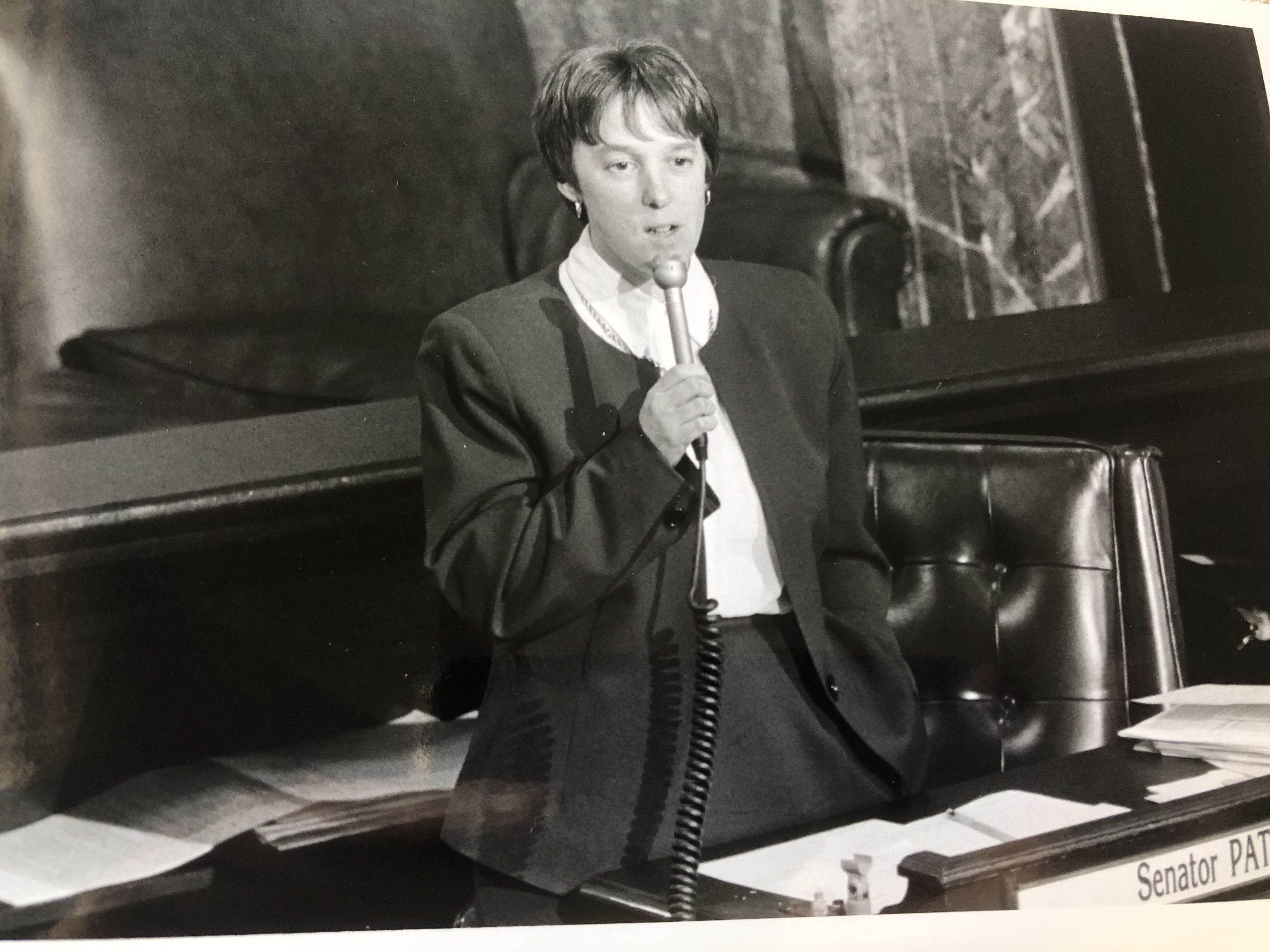
Early Days
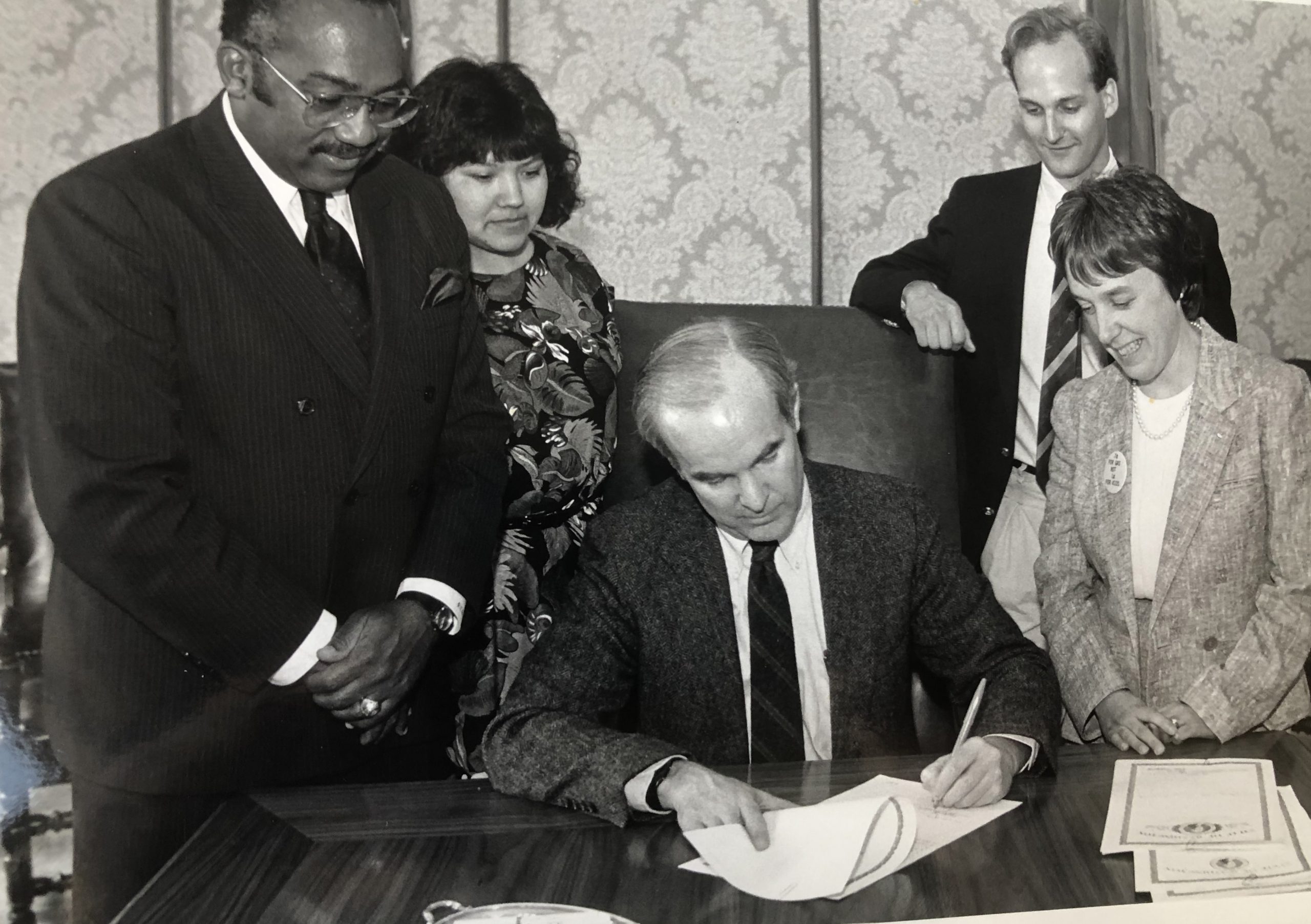
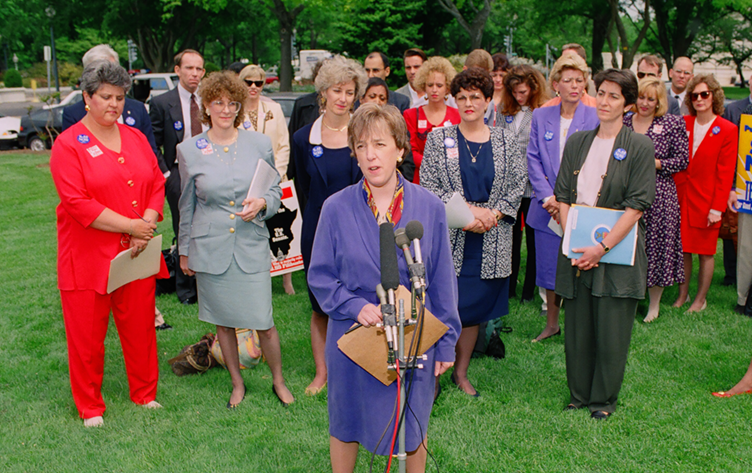
A "mom in tennis shoes"
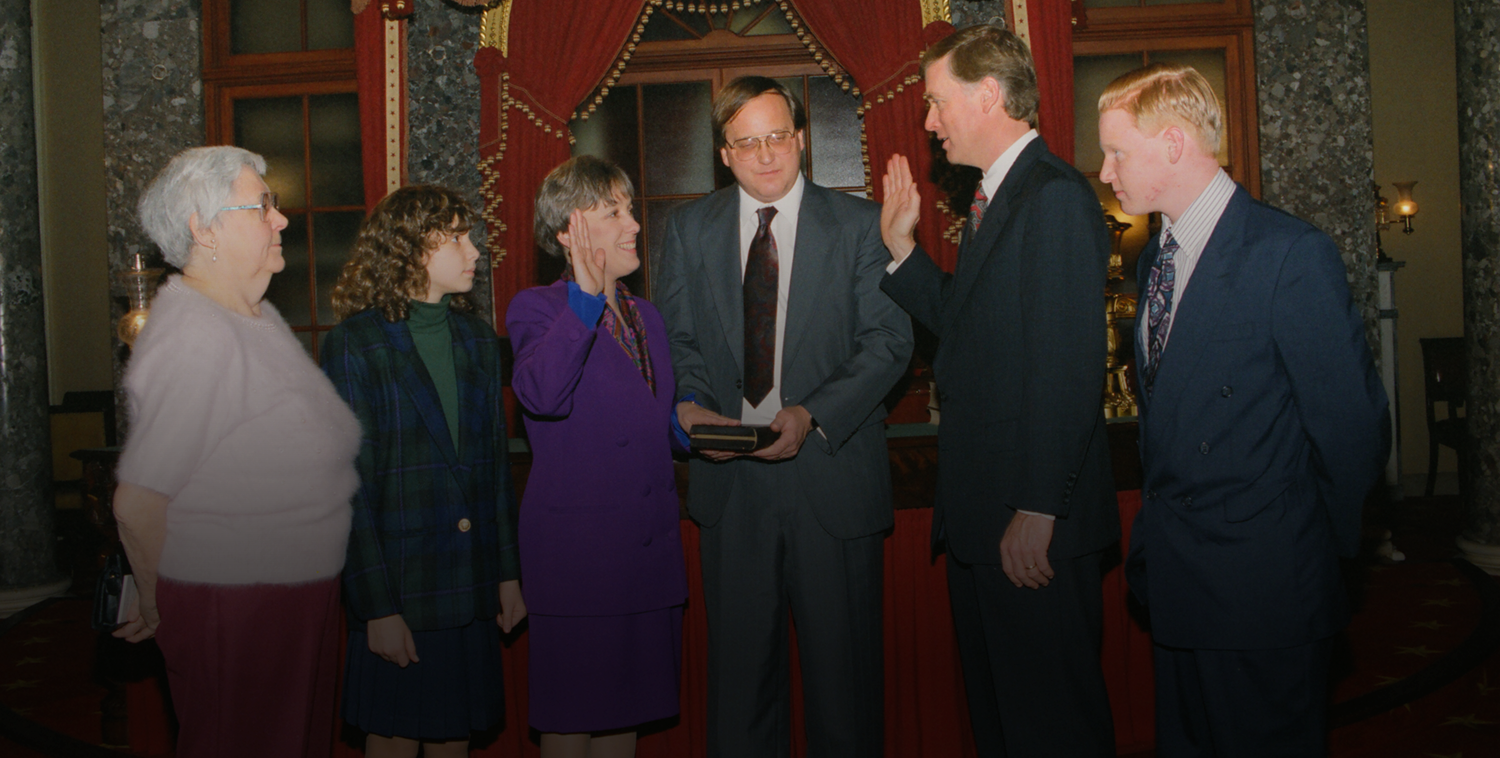
As a working mom, Patty was never planning to enter politics. But when she saw problems in her community, she realized she couldn’t just wait for someone else to solve them. When local officials planned to close her kids’ preschool program due to state budget cuts, Patty took action. She packed up her two young children and went to Olympia to urge her state representatives to save the preschool program. While there, one male legislator told her she couldn’t make a difference because she was “just a mom in tennis shoes.” Patty didn’t let that stop her—in response, she organized a grassroots coalition of 13,000 parents that fought successfully to save the preschool program.
Patty saw the difference local government could make if it was more like the people and families it represents, which led her to serve on the Shoreline School Board, and in 1988, she was elected to the Washington State Senate.
In 1991, Patty watched the Anita Hill hearings along with the rest of the country where the fact that there were only two women in the entire U.S. Senate—and none on the Senate Judiciary Committee—was on full display. Patty decided to run for Senate in 1992 as a voice for Washington workers and families who were not being heard—especially women. Dramatically outspent, Patty ran a grassroots campaign of family, friends, supporters, and public interest groups to beat a 10-year veteran of the U.S. House of Representatives and win the Senate seat. Patty was re-elected in 1998, 2004, 2010, 2016 and 2022.
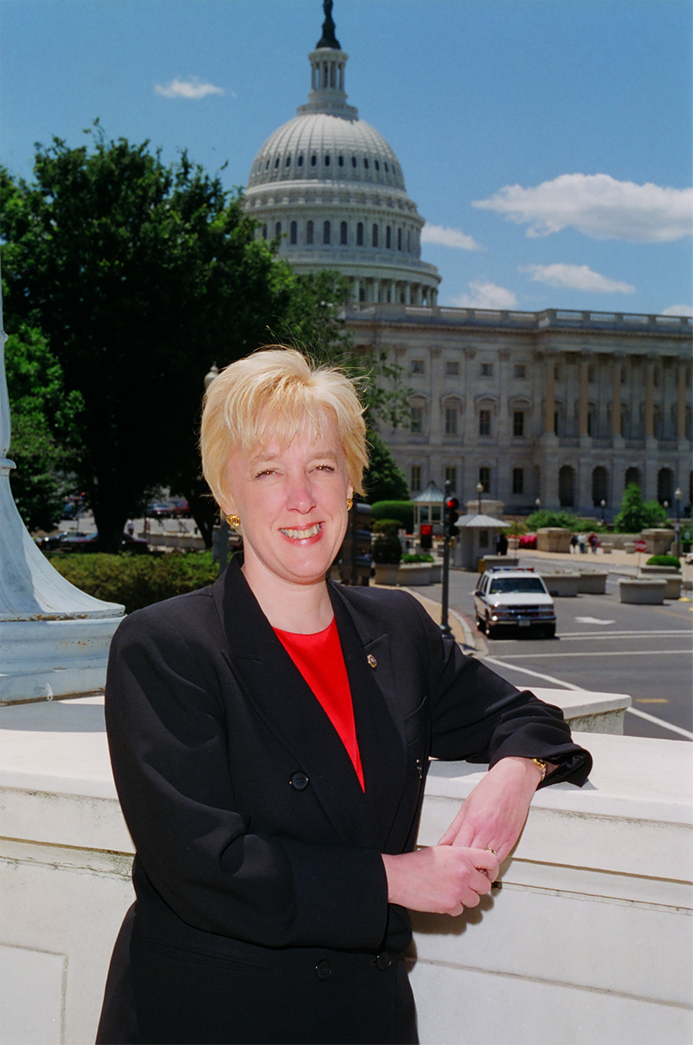
If someone tells you that you can’t make a difference, it’s because
They’re afraid
you will.
-Senator Patty Murray
Work in the Senate
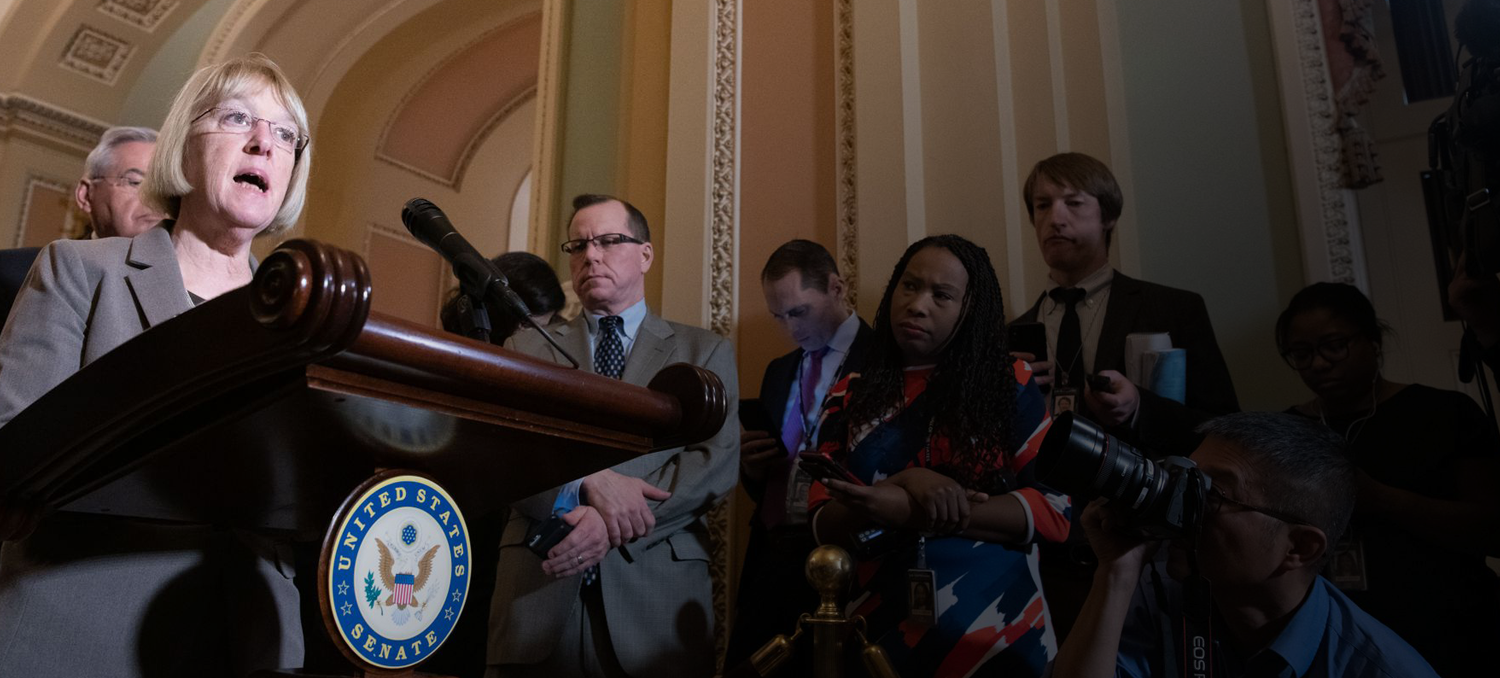

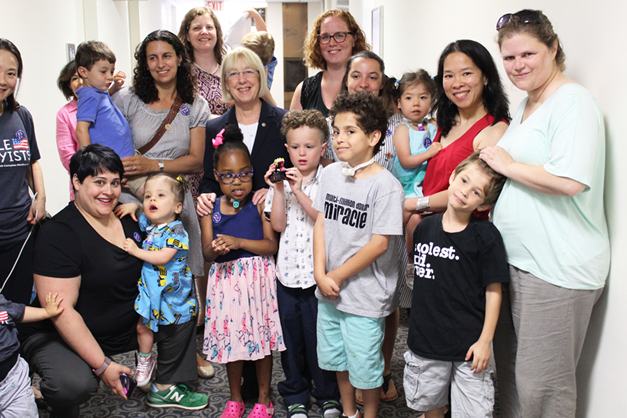
As Washington state’s senior Senator, a member of Senate Democratic leadership since 2007, and a member of the Senate Appropriations Committee since she first arrived in the Senate, Patty has a proven track record championing Washington state and breaking through partisan gridlock to solve problems, fight for progressive policies, and help workers, families, and communities.
Patty served as the first female Chair of the Senate Veterans’ Affairs Committee during the 112th Congress and served as the first female Chair of the Senate Budget Committee during the 113th Congress. As Chair of the Senate Veterans’ Affairs Committee, Murray worked closely with Republicans to spotlight the needs of women veterans and to expand benefits and support for veteran caregivers. As Chair of the Budget Committee, she worked with Congressman Paul Ryan to pass the Bipartisan Budget Act of 2013 in order to avert fiscal disaster. She most recently served as Chair of the Senate Health, Education, Labor, and Pensions Committee—where she negotiated and passed significant bipartisan legislation with her Republican counterparts: rewriting No Child Left Behind, passing the 21st Century Cures Act, delivering major COVID relief, passing sweeping public health preparedness measures, and much more.
In the 118th Congress, Patty took over as Chair of the powerful Senate Appropriations Committee, and made history as the first woman ever to serve as President Pro Tempore of the Senate. In these new roles she continues to be a forceful advocate for Washington state families, pushing for continued progress on everything from child care and paid leave to reproductive rights and climate action.
Patty’s approach today is the same as when she first entered politics: listen to families about the challenges they are facing, make their voices heard in the United States Capitol, then get to work to find solutions, build consensus, and deliver for the people of Washington state.


